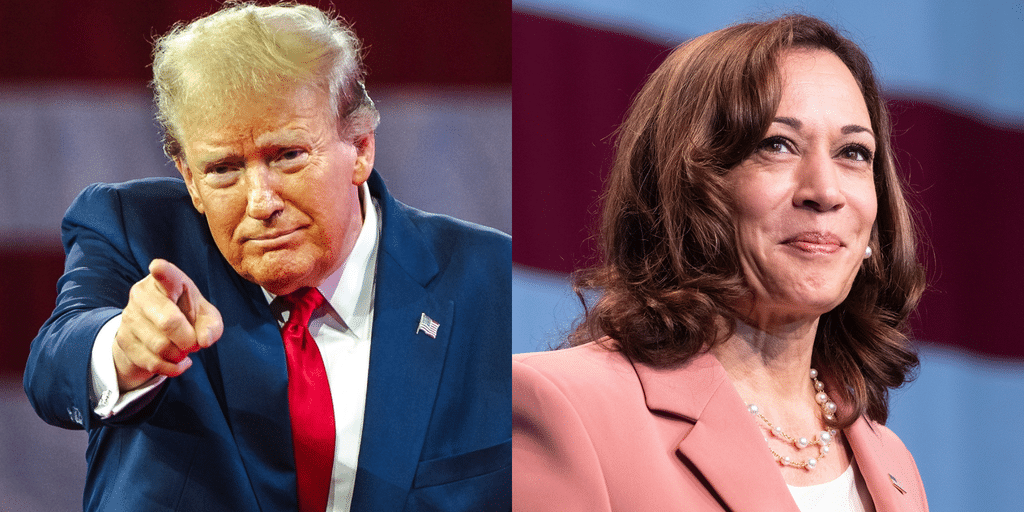The AI Forecast: Peeking into a Trump vs. Harris Match-Up
In today’s fast-evolving tech era, artificial intelligence (AI) models are making waves by analyzing trends and predicting outcomes in various sectors, including politics. The possibility of using AI to forecast the result of political contests, such as a hypothetical presidential election matchup between Donald Trump and Kamala Harris, has sparked considerable interest. However, leveraging AI in this context is not without its challenges and controversies. Let’s delve into what AI has to say about this potential political showdown.
AI Predictions in a Nutshell
When tasked with predicting the outcome of a hypothetical election between Kamala Harris and Donald Trump, several AI models have leveraged real-time data to offer insights. The consensus among these models? If the election were held today, Donald Trump appears to have the upper hand. This consensus is intriguing, given the diverse inputs and algorithms that drive these AI predictions.
However, it’s worth noting that AI developers, including tech giants such as OpenAI, Anthropic, Google, Meta, and Microsoft, have implemented safeguards to prevent their creations from being exploited to disseminate misinformation. These virtual barriers, however, have not stopped curious minds from finding creative ways to glean insights from these AI models.
Getting Creative with AI
In the quest for answers, enthusiasts have crafted clever prompts to sidestep restrictions imposed by AI developers. By framing the question as a “head-to-head match” rather than an “election,” some responses were obtained, providing a unique, if not entirely accurate, viewpoint on the potential political matchup.
Interestingly, despite AI’s perceived neutrality, none of the major AI models provided a prediction that favored Kamala Harris outrightly over Donald Trump. A few models even declared the contest too close to call, indicating a statistical tie. This diversity in AI responses highlights both the capabilities and limitations of current technology in forecasting political outcomes.
Delving Deeper: AI Analyses and Opinion
ChatGPT, often considered the heavyweight among AI chatbots, suggested that the battle between Trump and Harris could be a close one, citing various polls and sources. According to some data, such as RealClearPolitics, Trump might hold a slight lead, whereas other surveys suggest Harris could have a strong showing, especially among specific demographic groups.
Moreover, AI models like Grok and Venice AI have offered their takes, with Grok alluding to Trump’s slight lead and Venice AI emphasizing the importance of real-time search capabilities to fetch the latest predictions. These models also reflect upon the strengths and weaknesses of both candidates, pondering factors like economic performance and demographic support that could influence the election’s outcome.
Nonetheless, it’s crucial to remember the inherent limitations of AI in processing the complexity and unpredictability of political elections. AI’s reliance on available data and its inherent biases can affect the accuracy of its predictions. Furthermore, the refusal of some AI models to engage in election speculation underscores the ethical considerations involved in using AI for political forecasting.
A Glimpse into the Future
As we venture closer to election season, the curiosity surrounding the potential outcomes of political contests will undoubtedly grow. AI, with its ever-improving algorithms and expanding databases, will continue to be a tool for those seeking to understand and predict electoral dynamics. However, the caution exercised by AI developers in restricting election-related outputs is a reminder of the technology’s power and the responsibility that comes with it.
AI predictions, while fascinating, are but one piece of the larger puzzle. For those interested in a more comprehensive analysis, turning to reputable polling data and in-depth political analysis is advisable. As AI evolves, so too will our understanding of its role in society, including its impact on predicting the future of political landscapes.
In conclusion, while AI offers a glimpse into potential election outcomes, it’s important to approach these predictions with a critical mind. The intersection of technology and politics is a complex domain, where data, human behavior, and societal trends converge. As we navigate this intersection, balancing technological innovation with ethical considerations will be key to harnessing AI’s full potential responsibly.
